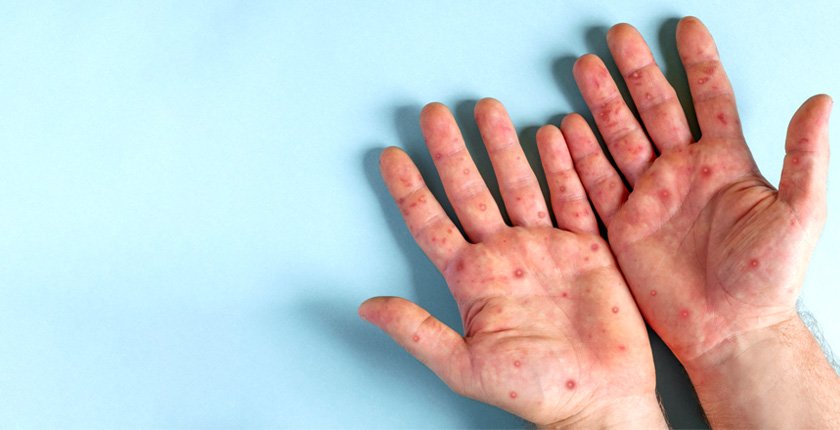
HOW STRESS CAN TRIGGER ECZEMA, AND HOW TO AVOID A FLARE UP
How Stress Can Trigger Eczema and How to Avoid a Flare-Up
Over 31 million Americans nationwide suffer from eczema, the most common chronic skin disorder in this country. Many studies have reported that stress is among the most commonly identified triggers of eczema flares. This blog post aims to explore how stress triggers eczema, impacts the condition, and helps prevent and control flare-ups. If you have eczema or stress-induced eczema or just want to know more about the relationship between stress and eczema, this helpful guide will better prepare you for the best ways to get over your condition.
Stress and Eczema
People often refer to eczema as. People have described this disease as an inflammatory response of the skin. Fundamentally, it tends to accompany skin dryness, itchiness, and redness. Stress is not the primary but it is a known trigger for flare-ups. Stress intensifies the hormones that constitute cortisol, which can further deteriorate your immunity and exacerbate your eczema condition. According to some articles published in the Journal of Allergy and Clinical Immunology, psychological stress can exacerbate diseases like eczema by increasing inflammation.
How Stress Triggers Eczema Flare-Ups
Your body system continuously secretes adrenaline and cortisol, two chemicals produced by your adrenal gland, under stress. Stress hormones break down your skin barrier, such as skin left out there exposed and flared. While not a direct cause, stress induces risky behaviors that lead patients to itch and neglect their skincare regimens. In 2019, over half of eczema patients reported stress as one of the factors exacerbating their symptoms, marking its origins.
The Impact of Stress on Eczema Symptoms
Stress exaggerates and worsens the appearance of your eczema symptoms. Experience all of the following symptoms:
Increased itchiness: Stress triggers more of an itch-scratch cycle; hence, more irritation.
Pustular eruptions of the skin: Stress weakens the immune system, which can lead to the development of eczema eruptions.
Thickened rough skin: Persistent stress causes excessive scratching, which leads to permanent skin thickening, a condition known as lichenification.
Types of Eczema Linked to Stress
Stress causes or flares up several types of eczema. These include
- Atopic dermatitis
- Contact dermatitis
- Dyshidrotic eczema
- Nummular eczema
Although eczema symptoms vary, they all worsen when stress levels rise.
Stress-related eczema: causes and symptoms
Stress-induced eczema is a psychologically acquired condition that disrupts the skin’s normal barrier. Most eczema cases, causally related to psychological stress, exhibit the following common signs:
- Redness
- Severe itching
- Dry scaly
- Swollen inflammation
- Burning sensations
Stress Dyshidrotic Eczema: Hands and Feet Affected
Stress-induced dyshidrotic eczema and hand-and-foot predilection no longer exist. Dyshidrotic eczema is a type of eczema that predominantly affects the hands and feet and is highly sensitive to stress. Very small, pruritic vesicles, which cause extreme pain, are the classical explanation for it. Stress appears to trigger these flares, necessitating treatment to prevent the eczema causality loop from continuing.
Stress-related dermatitis on the hands
Frequent hand washing or irritation at work can cause hand dermatitis, another stress-related disease. Other symptoms include dryness, cracking, and an uncontrollable itch that can flare up with emotional stress.
Identifying and Managing Stress Eczema Rash
Recognizing an eczema stress rash
The rash associated with stress eczema is not easy to diagnose, but some of its symptoms include:
Stress Rash: Flare-ups have also been known to occur due to stress. Stress dermatitis commonly manifests on hands, faces, and other body parts, and itching tends to dominate these areas. Study Eczema Stress Rash
Eczema scale rash is characterized by scaly, red skin and small blisters filled with fluid. Such eczema can arise anywhere in the body but occurs mainly in those parts that have hands, neck, and face.
Stress Eczema on Face: Common Causes
Stress eczema frequently affects especially at sensitive areas. General offending factors of stress eczema could be either an emotional or environmental irritant, which may be combined with a lack of skin care during periods of stress. A dermatologist can probably prescribe a gentle skincare course that cuts down on symptoms as well as prevents permanent damage.
Stress-Related Eczema on Hands: Signs and Symptoms
This represents an itchy, cracked, and inflamed skin condition. This condition can be particularly bothersome for individuals who frequently use their hands due to their busy schedules at work or during daily operations. Frequent hand washing, prevalent in health facilities and food industries, also contributes to these factors.
Preventing and Treating Stress-Related Eczema Flare-Ups
Understanding your life’s primary stressors and making every effort to prevent or control them is the key to managing eczema-induced stress.
Tips to Avoid Eczema Flare-Ups Triggered by Stress
Engaging in stress-relieving activities, such as meditation, yoga, or exercises, can alleviate stress.
Practice moisturizing by using hypoallergenic lotions and avoiding irritant soaps.
Hydrate the skin: drink enough water to hydrate your skin from within.
Avoid irritants: wear rubber gloves while cleaning or using chemicals.
Get enough rest, manage your stress, and periodically rejuvenate your skin.
Stress Management Techniques for Eczema Sufferers
Indeed, managing stress is crucial for preventing or alleviating eczema symptoms. The following have been quite effective:
Mindfulness and Meditation: This activity reduces overall stress, gradually reducing the eczema symptoms.
CBT makes sure to address the emotional stressors causing the eczema outbreak.
Exercise: Low stress with healthy skin
Lifestyle Changes to Minimise Stress Eczema Rash
Good lifestyles, free from poor lifestyle habits or addictions such as smoking, reducing alcohol intake, and maintaining a healthy diet, are likely to lead to a lower incidence of mild stress eczema.
Effective Treatments for Stress Eczema
The treatments for eczema with stress attacks include various forms, such as over-the-counter drugs and prescription drugs.
Eczema Medicine and Topical Solutions
Topical steroids, which are essentially prescription drugs, typically have a shorter action duration to reduce redness and itching.
Moisturisers and emollients: After bathing, patients with eczema use moisturizers as part of their treatment. Fragrance-free preparations must be used.
Antihistamines: In an acute attack, they can help induce sleep and relieve pruritus.
Atopic Eczema Treatment Options
Some of the treatments include topical immunomodulators, phototherapy, or biologic drugs such as Dupilumab, whose US FDA has recently approved treatment for patients with severe eczema, among others.
Dermatitis Treatment for Stress-Induced Eczema
Its treatment can be combined with drugs; the medicines used include topical steroids applied in the areas infected or in contact with the infection and supplemented by topical antibiotics. In addition, stress management programs may incorporate relaxation therapy.
Long-Term Care for Stress-Triggered Eczema
Chronic eczema will thus require long-term management. Firstly, it will combat the physiological and psychological symptoms of stress in the body.
Eczema Cure: Is It Possible?
Fortunately, proper skin care, medical treatment, and stress management can mitigate eczema flare-ups, even though there is no cure.
Managing Chronic Stress and Eczema Together
If a patient has been suffering from eczema for an extended period, it is important to address the underlying cause, which in this case is chronic stress. This also requires periodic care by specialists in the dermatology department and psychiatrists.
Daily Skin Care Routine for Preventing Stress Eczema Flare-Ups
Maintaining a well-kept skincare routine can significantly reduce the frequency of eczema flare-ups.
Cleaning: Apply gentle, scent-free cleaning soap twice daily.
Moisturize: apply a thick, emollient moisturizer within three minutes of taking a bath.
Protection: Apply sunscreen, as UV exposure can easily flare up eczema.
Professional Help for Eczema and Stress
If the severity of the stress eczema is significant, it would be beneficial to invest both financial resources and time in consulting a dermatologist for medical guidance or a solution. Even if this were necessary, a registered therapist or counselor could help someone seek treatment for the psychosomatic stress that is causing the eczema eruptions.
Consult a dermatologist for acne treatment.
If the patient’s condition requires improvement, they need a dermatologist who can diagnose and determine the necessary treatment plan promptly. Most of them deliver telemedicine consultations to patients in an effortless manner.
Psychological Approaches to Stress-Related Eczema
It may serve as a healthy method of stress management and could potentially be a significant step in managing eczema effectively. Such therapies, such as cognitive behavioral therapy (CBT), aid in developing resilience to stress, potentially preventing flares.
Conclusion
However, it appears that stress serves as an effective trigger for eczema. With this understanding of how stress triggers and stress manifestations contribute to eczema, a patient can make adjustments that may lead to improved management of both conditions. This will enable you to better manage flare-ups and regain control over your condition. This implies that the patient can only lead a quality life after effectively managing stress factors and implementing a proper skincare routine under the guidance of professionals.
FAQs
1: Does stress cause eczema?
Indeed, it serves as a trigger for eczema flare-ups. In addition to this, it triggers the production of excessive inflammation hormones, which in turn damage the skin’s barrier mechanism.
2: How Can Stress-Induced Eczema Flare-Ups Be Avoided?
Keep your stress well managed, and also keep your skin properly hydrated and exposed to all known irritants.
3: What are some of the best treatment options for eczema or stress eczema?
In this case, topical moisturizing creams, topical corticosteroids, antihistamines, and other stress management techniques, such as meditation and exercise, were some of the most effective treatment options.
4: Is it curable?
However, effective care and treatment can control the symptoms with proper stress management.
5: Should I visit the doctor if it’s stress-related eczema?
If your condition has been severe and permanent, you must consult with a dermatologist.
Lorem ipsum dolor sit amet, consectetur adipiscing elit. Ut elit tellus, luctus nec ullamcorper mattis, pulvinar dapibus leo.






